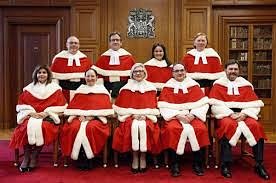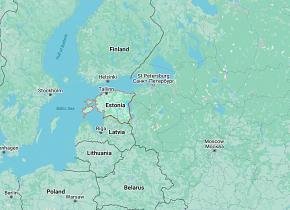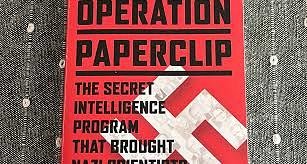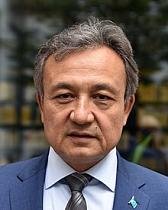India's Archons bribes Australia for awards -- Cricketism
India's Archons promotes nuclearism, terrrorism and cricketism as a state policy. At long last, India has successfully negotiated with Australia a so-called Order for one of the prominent Hindu gods Sachin Tendulekar who has fallen disgracefully as the most pampered cricketer in India.
Australia has now announced it would confer their order on the favourite cricketer Indian cricket mafias, Sachuin who keeps seeing his stumps get devastated by the bowlers’ balls. Indian media that are too depressed about the abrupt and irreversible fall of Sachuin and thereby exposing his fake iconism, have now got some relief that Indians are still wanted elsewhere.
No batboy can shine if he bowlers are strong enough. Of late none of bowlers offer a free lift to Tendulekar and all his worshippers and mafia agents are deeply worried.
Foolish runouts, hopeless fielders and bowlers and those who cannot protect their stumps are greatest of cricket world of mafias. State bribes and other crimes are not considered to be a crime at all by the terrocracies. Recently, Sachuin and his worshippers were disappointed that he was not offered Pharatratna by Indian corporatist regime just like the bowlers offered him so many 100s.
As Sachuin was struggling to somehow get Pharatratna, Australia conferred the “Order†to its own cricketer R. Ponting who since then has not made any significant runs mainly because the bowlers refuse to make him shine unnecessarily now. The same case applies to Indian Sachuin.
For Australia where entertainment cum enjoyment with liquor plays a central role in their lives; a cricket showman Ponting was found to be the greatest. This approach of the regime makes the nation very cheap in form and contents.
But why is India so cheap as to push for “order†for one batboy when there are so many other possibly real talents in other fields? Why ignore others for foreign awards and degrees?
TWO
India’s thirst for blood, cricketism and nukes is alarming. Despite serious differences with India starting from the 1974 nuclear tests in Pokhran, Canada came round to having a civil nuclear pact with India after the NSG waiver. Together with Australia and Kazakhstan, it accounts for 63% of total annual uranium production in the world. India has inked a civil nuclear pact with Kazakhstan as well. After having overcome stiff opposition from across the country over uranium supply to India, a non-NPT signatory, Canberra has assured India that it is putting internal arrangements in place to facilitate supply of uranium to India.
India wants plenty of uranium for nukes and other purposes. Australia holds 40 per cent of the world's known uranium reserves, and as a rapidly expanding economy, India's need for uranium to generate power is growing. India currently has agreements with at least eight countries to supply its nuclear energy program. It only uses domestically-sourced material for its weapons program and many in Australia feel like the former head of the Australian Safeguards and Non-Proliferation office, John Carlson, India would funnel Australian uranium into its military activities.
Australia ships nuclear fuel to China, Japan, Taiwan and the United States but had refused to sell it to India because the country is not a signatory to the Non-Proliferation Treaty. Somewhat fast-growing India is a key trade partner for Australia and the two countries agreed in 2009 to upgrade their relationship to a "strategic partnership" involving greater security co-operation.
Aussies PM Mrs. Julia Gillard arrived in India for a three-day visit aimed at boosting economic ties and uranium sales plus education funds dominated her three-day visit. Last December, the Labor Party voted to overturn a longstanding ban on such exports, but critics oppose the move because India has not signed the Nuclear Non-Proliferation Treaty. Ms Gillard added that exports will only take place if India's nuclear facilities are subject to rigorous safety standards, and observers believe a final deal to export uranium could be years away.
India's nuclear diplomacy seems to be paying rich dividends with the prime ministers of top two uranium producing countries — Australia and Canada — scheduled to visit India this year. Government sources confirmed that India has given green signal to visit by Australian PM Julia Gillard and her Canadian counterpart Stephen Harper as both these leaders were keen on visiting India. India ended its status as a nuclear pariah when it entered into a civil nuclear agreement with the United States in 2005 that was approved by the International Atomic Energy Agency.
India is a key trade partner for Australia and the two countries agreed in 2009 to upgrade their relationship to a "strategic partnership" involving greater security co-operation. While India signed a civil nuclear agreement with Canada in 2010, a deal seen as having the potential to corner 2,000 tonnes of uranium for the country despite certain technical limitations, the Gillard-led Labor government in Canberra recently reversed the ban on exporting uranium to India.
Australia's ruling centre-left Labor party voted to overturn its ban on uranium sales to India last year after a long debate about nuclear weapons and reactor safety following Japan's atomic crisis. Australia has agreed to consider the sale of uranium to energy-hungry India. India has not signed the Non-Proliferation Treaty, and Gillard and Prime Manmohan Manmohan Singh are slated to announce preliminary negotiations over a civil nuclear deal.
Gillard's visit was expected to provide more clarity on exactly when uranium shipment to India will commence. “Nuke stuff was obviously one of the main issues in the agenda when the two PMs met but the “order†was decided by both well in advance. The Gillard visit might mark another attempt by Australia's Labor government to mend fences with India after having been accused of ignoring ties with the country. It started in 2009 with the visit of then PM Kevin Rudd to India in 2009 soon after ties seemed to have taken a hit in the face of attacks on Indian students in Australia.
Madam Gillard after a surprise trip to Afghanistan had meetings with business leaders and their protector Singh in Delhi. Indian nuclear mafia abroad is doing well. Australia's ruling centre-left Labor party voted to overturn its ban on uranium sales to India last year after a long debate about nuclear weapons and reactor safety following Japan's atomic crisis. Despite being a member of NSG, which granted a special waiver to India for carrying out nuclear commerce despite it not having signed NPT, Canberra maintained that it was not going to supply uranium to India until late last year. No Indian PM has visited Australia for over quarter of a century, and last year even Manmohan Singh pulled out of a Commonwealth Heads of Government Meeting (CHOGM) meeting in Australia, much to the disappointment of the Australian government. This was despite Singh having attended the two earlier CHOGM events in Uganda and Trinidad & Tobago.
Princeton University's Nuclear Laboratory has told Radio Australia's Connect Asia India's nuclear watchdog is ineffective and negligent in monitoring safety. The government lacks the sort of basic elements of trust with respect to nuclear safety," he said. "The Department of Atomic Energy... they are not answerable to the government the way most other departments are." Now that India has taken the decision that it wants to import nuclear technology and nuclear material from around the world, it's clearly important for India to maintain security of supply for those materials.
THREE
Cricketism has brought India closer to Australia and nuclear grey deals brought them still closer and the announcement by a silly Australian PM to offer the nation’s prestigious awards to foreigners, especially in cricketism exercises. India needs Australian uranium for nuclear terror purposes, while Australia needs Indian money in investments and educational services. More and more students from India study in Australia at many levels and that helps Australia with the needed money. In order to save financial position, USA is also wooing Indian regime to send students for study in America even at reduced rates and that information upsets Australia and hence a special offer of “order†for Indian cricketer Sachuin as bribe. In fact both India and Australia bribe each other.
Gillard, who is currently on her three day visit in New Delhi, had announced that Tendulkar would receive the special honour. "This is a very special honour, very rarely awarded to someone who is not an Australian citizen or an Australian national," she said. ABC quoted Australia India Youth Dialogue chairman as saying that the “order†approach has worked with the Indian public. I think perhaps the Order of Australia to Sachin Tendulekar is probably going to be bigger than the nuclear issue," he said. "I think the nuclear issue is a trust issue with the bluffing Indian government whereas the Order of Australia to Sachin Tendulekar is going to be the headline headache for the world.
Meanwhile, an Australian Federal Independent MP Rob Oakshott has questioned Prime Minister Julia Gillard's decision to award an Order of Australia to Indian cricketer Sachin Tendulekar who took over 12 months to make his one last century in Bangladesh where the weak bowlers helped him shine one last time at long last.
MP Rob expressed his love for cricketism but said the special award should not be used for diplomatic gain, the ABC news reported. “ I love cricket. But I just have a problem with soft diplomacy as you call it," he said, adding "Getting in on the act of the Australian honours." Oakeshott said the Order should be focused on recognising Australians doing community work instead. "I'm not going to die in a ditch over it...but it's about the integrity of the honours list which should be for Australians," he said.
That a premier could be a deadly fanatic is seen in the example of Australian premier, who supports NATO terrorism and Indian cricketism. It is shameful. Mutual exchange of honorary degrees and awards are very common, like street robberies, in international politics for the promotion of trade in arms and nukes stuff.
Russians supply India nuclear stuff and Australians offer awards. Sachuin could reject the award saying that he not an Australian nor did he serve Australia in any manner (in fact Australian bowlers served the cause of Sachuin) but he is a pure Indian of cricket gimmicks. However, anything free is ok for Indians! Stolen goods and awards are most welcome in India.
An Observation
Australians know India’s weakness in cricketism, terrorism and nuclearism. As an ally of notorious NATO terror operations, Australia exploits Indian weaknesses. New Delhi, focused on expanding strategic ties by employing tools like nuclearism terrorism and cricketism, wants to expand the strategic canvas of partnership with Sydney by agreeing to work closely in creating an inclusive “order†in the Asia-Pacific region and in boosting “counter-terror cooperationâ€. India treats the launch of nuclear negotiations a turning point in bilateral ties, but Gillard made it extras clear that the deal could take at least two years before uranium exports actually begin. Meanwhile, Australia would observe the India’s nuclear behaviour indoors.
Both wanted to step up negotiations for a Comprehensive Economic Partnership Agreement that will help scale up bilateral trade but Australia is more interested in Indians’ investment. Annually now India's investments in Australia are around S$ 11 billion and Australia is eager to double it by 2015.
The world is apparently full of state terrorists, frauds, mafias and their leaders ruling the nations to loot the resources and promote their own businesses. Madam Gillard is just one of them. Look at the fate of India suffering at the dirty hands!.
The real motive behind the secret fixing for Sachuin is not very clear and if India regime is trying to rekindle the Phratratna gimmick all over again is not clear as well.
Why is India so adamant about nuclearism and cricketism? Can India's acute Indian problem be cured?
Why should the Indian regime of corporates and mafias kill people in Kudankulam?
Comments
There are 0 comments on this post












